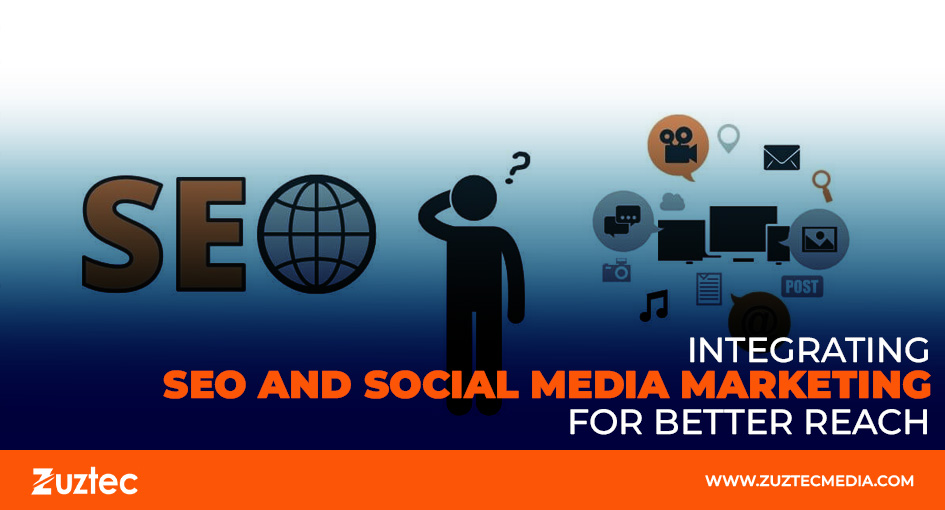
Integrating SEO and Social Media Marketing for Better Reach
In today’s digital landscape, businesses must quickly adapt to ever-evolving trends to stay ahead of the competition. As the internet continues to dominate consumer behavior, gaining visibility and attracting customers has never been more challenging. Two of the most critical strategies for increasing a brand’s online presence are SEO and social media marketing. While both of these strategies are highly effective on their own, integrating them can provide businesses with a comprehensive approach that leads to even greater reach, engagement, and overall success.
Search Engine Optimization (SEO) is all about optimizing a website to rank higher in search engine results pages (SERPs), thus driving organic traffic. By focusing on optimizing keywords, improving user experience, and earning quality backlinks, businesses can boost their visibility in search engines like Google. On the other hand, social media marketing harnesses the power of platforms like Facebook, Instagram, Twitter, and LinkedIn to build brand awareness, foster customer relationships, and drive conversions.
When integrated effectively, social media marketing and SEO can complement each other, creating a holistic strategy that maximizes reach, strengthens brand identity, and accelerates business growth. In this article, we’ll delve into how businesses can seamlessly combine SEO and social media marketing to form a unified strategy. We will also cover the key benefits, best practices for integration, and ways to measure the success of such an approach.
1. SEO and Social Media Marketing: Enhancing Visibility Through Both Channels
One of the primary advantages of combining social media marketing and SEO is the ability to increase your brand’s visibility across multiple channels. By leveraging both strategies, businesses can target users at different stages of the buyer’s journey.
SEO focuses on improving your website’s rankings on search engines, which is vital for attracting organic traffic. A higher ranking on SERPs leads to increased visibility for your brand. With social media marketing, you can increase your visibility on social platforms, which is where many consumers spend a large portion of their time.
When integrated, social media can support SEO efforts by driving traffic to your website. Conversely, SEO can make your content more discoverable, which can then be shared and promoted on social media. This cross-channel promotion boosts the chances of your content reaching a larger audience.
Example: By creating SEO-optimized blog posts that are promoted through social media channels, businesses can generate organic traffic that also gains attention from social media followers, amplifying reach and visibility.
2. Building Engagement and Encouraging Social Sharing
Social signals; like shares, likes, and comments—don’t directly impact SEO rankings, but they still play an indirect role. Social media engagement can lead to increased brand recognition, which can drive traffic to your website. The more users interact with your posts, the more likely your content is to be shared, and this extended reach can ultimately lead to more inbound links. In the SEO world, high-quality inbound links are a valuable ranking factor.
When you integrate SEO and social media marketing, you’re providing a seamless experience for users. Your content becomes more shareable when it is optimized for search engines, leading to higher engagement on social media. Additionally, the higher the engagement, the more likely users will convert into customers.
Example: If you create an infographic or blog post that is both SEO-optimized and highly shareable, you encourage social media users to share the content with their networks. This can result in more people visiting your site, increasing both engagement and traffic.
3. Improving User Experience and Retention
Social media marketing and SEO also work together to improve the overall user experience, which is a critical factor for both engagement and SEO rankings. Google rewards websites that provide high-quality user experiences, and social media can help enhance this experience by providing a direct communication channel between the brand and its audience.
Social media platforms give businesses the opportunity to engage in real-time conversations with their customers, address complaints, answer questions, and build trust. When these interactions are integrated into a broader SEO and social media marketing strategy, customers feel more connected to the brand, increasing retention and encouraging repeat visits.
Additionally, when social media ads are targeted properly and the landing pages are optimized for SEO, users are more likely to stay on the site longer, interact with more content, and convert into leads or customers.
4. Analyzing and Measuring Success
To ensure that your social media marketing and SEO efforts are paying off, it’s important to track and measure your results. Both SEO and social media marketing provide valuable data on how your content is performing, where your traffic is coming from, and how users are interacting with your brand.
Google Analytics, social media insights, and SEO tools like SEMrush or Moz can help track your performance across both channels. Here are some key metrics to monitor for integrating social media marketing and SEO:
- Website Traffic:
Track the number of visitors coming from both social media platforms and organic search results.
- Engagement:
Monitor social media engagement metrics, such as likes, shares, comments, and click-through rates (CTR).
- Conversions:
Measure how many users are taking desired actions, such as signing up for newsletters, downloading resources, or making purchases.
Regularly reviewing these metrics allows businesses to refine their strategies, optimize their content, and adjust their approach to achieve the best possible results.
To sum up, integrating SEO and social media marketing can provide businesses with an edge in the highly competitive digital world. By combining the strengths of both strategies, businesses can drive more traffic, enhance engagement, and build a stronger brand presence across multiple channels. The synergy between social media marketing and SEO allows businesses to extend their reach, connect with their target audience, and achieve long-term growth. To succeed in today’s fast-paced digital landscape, it’s essential to develop a comprehensive, integrated marketing strategy that leverages the power of both SEO and social media.

